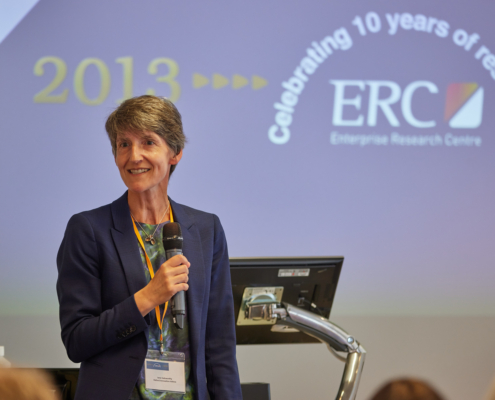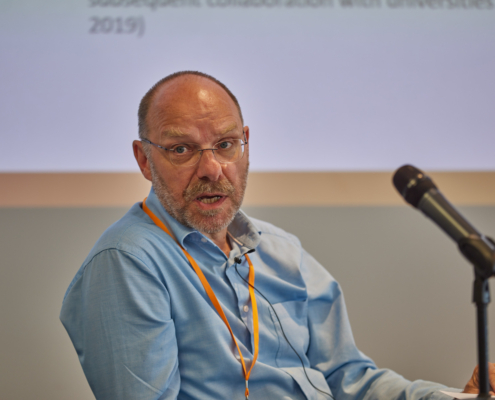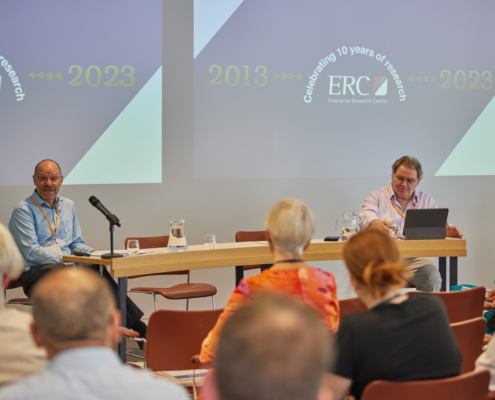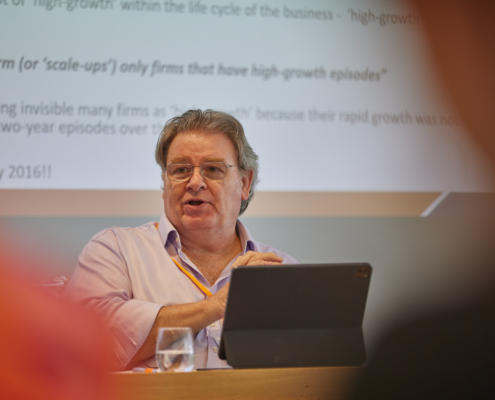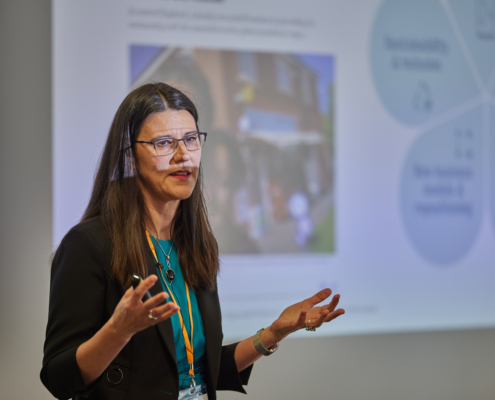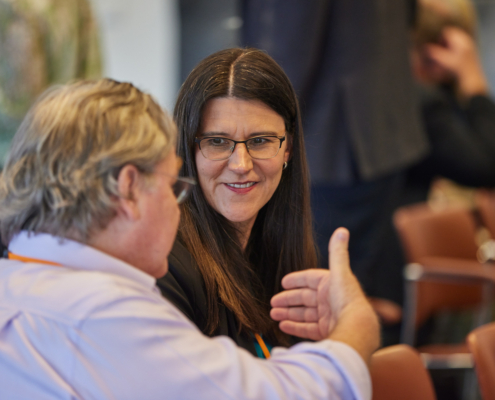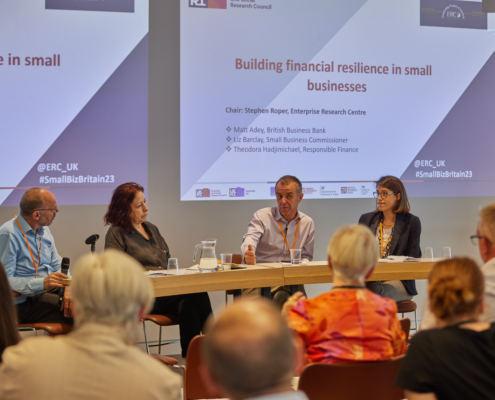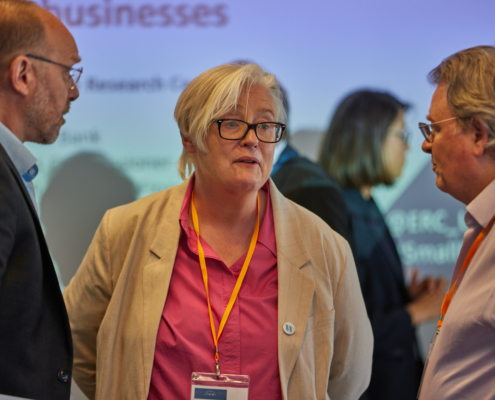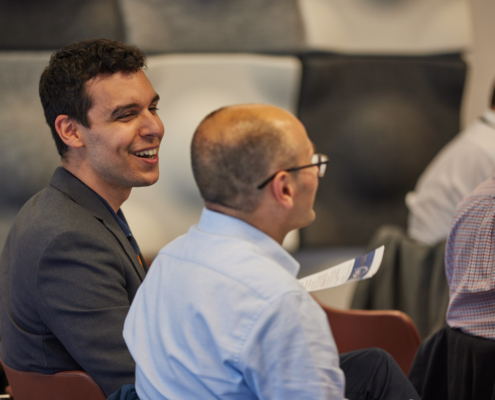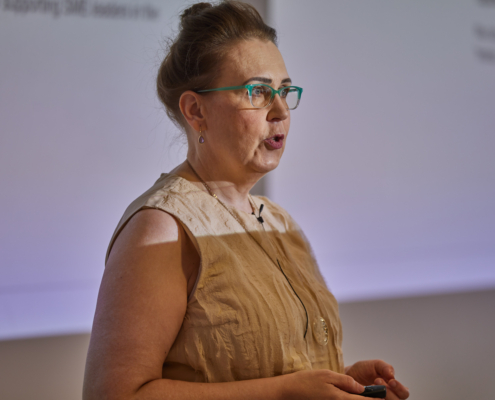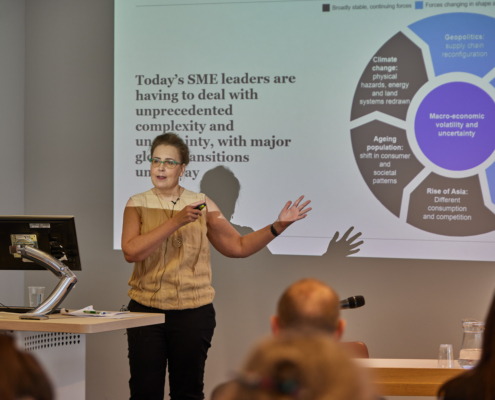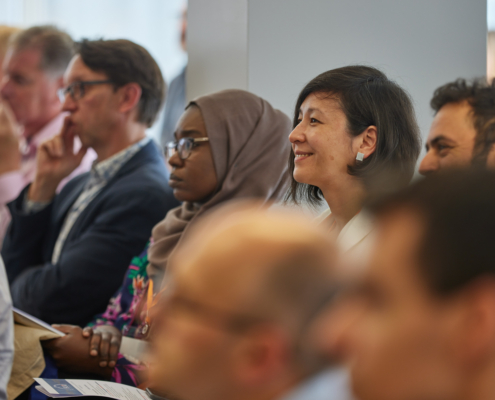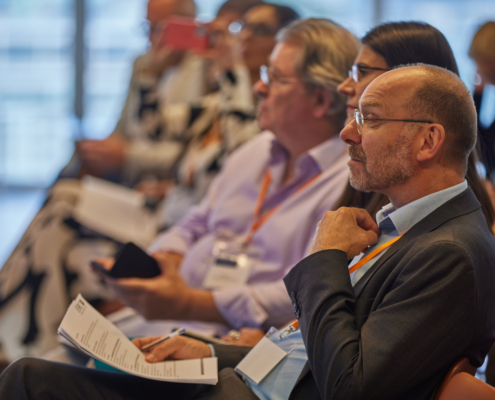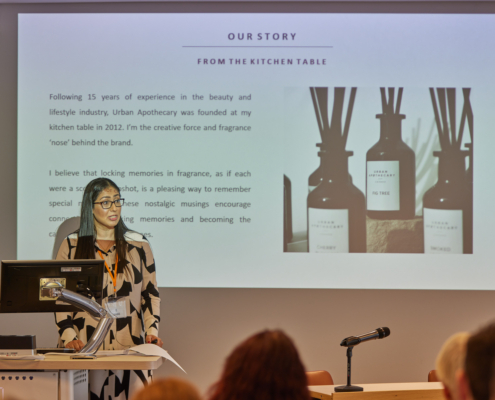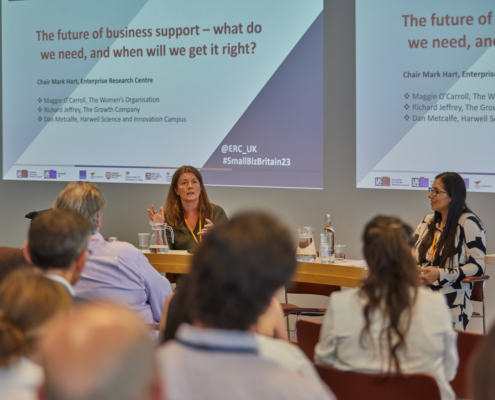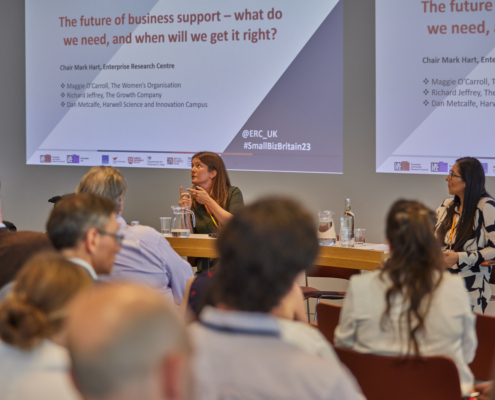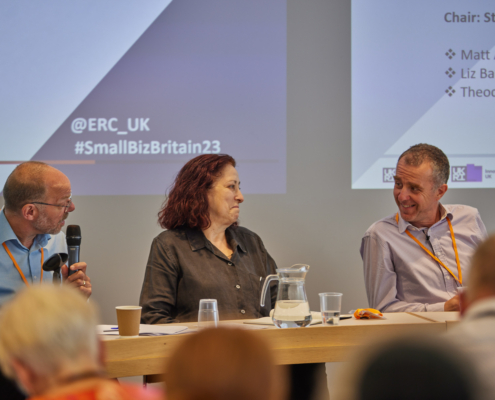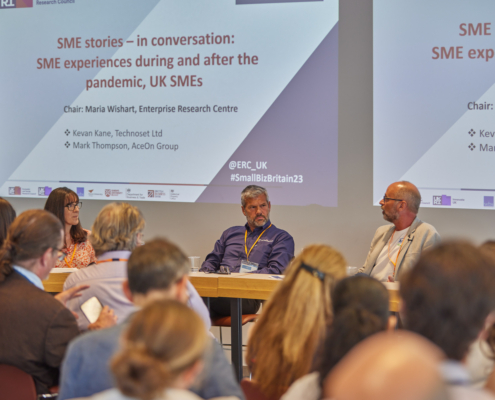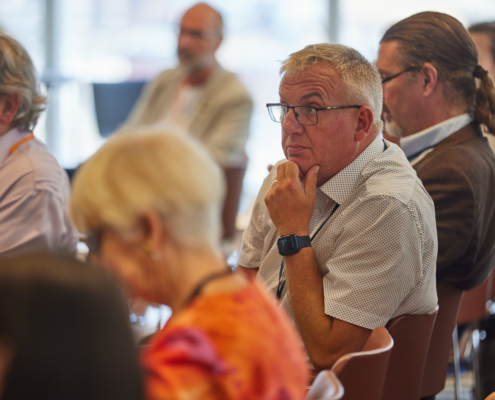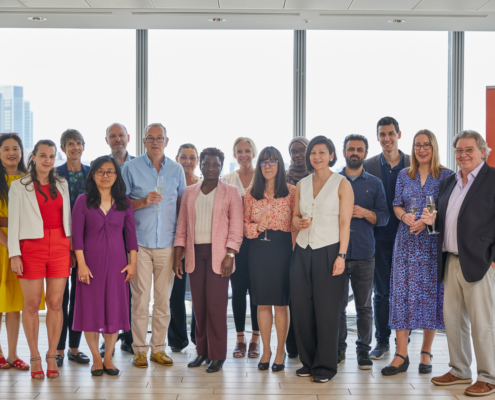State of Small Business Britain Conference 2023: SME Futures
On Wednesday 21st June the ERC team were back at The Shard for our annual State of Small Business Britain conference. The conference, which was chaired this year by our Steering Group Chair Jane Galsworthy, focused on the theme of ‘SME futures’. Delegates enjoyed a day full of knowledgeable and inspiring speakers on a range of themes including the effects of the pandemic on entrepreneurs, building financial resilience in SMEs and the future of business support.
We began the day with an introductory session by Stephen Roper and Mark Hart, who summarised what we’ve learnt from 10 years of ERC research into a 20-minute slot – no mean feat!
The presentation covered some of our key insights on business growth, such as the fact that very few firms can be categorised as ‘high-growth’; the recognition that growth is usually shaped by multiple factors with some entrepreneurs more positively disposed to growth than others; and the dangers of focusing on exclusively growth-inclined SMEs. ERC insights on innovation were also shared, including the ways in which different types of innovation relate differently to growth and productivity, the value of collaboration and public support for R&D, and the ways in which innovation plays a critical role in both stimulating and capitalising on the benefits of exporting.
Stephen Roper finished the presentation by emphasising that partnership working has been crucial to the ERC’s success, enabling our insights to inform several aspects of enterprise policy over the decade.
Next to the floor was our first external speaker, Ute Stephan of Kings College London, who presented learning from her research on entrepreneurship and the pandemic, involving over 5,000 entrepreneurs in 23 countries. Ute covered a range of themes, including the mental health impacts of the pandemic, but also some more positive trends, including the increased awareness of environmental issues, and an upswing in societal engagement amongst entrepreneurs.
We turned next to an ‘in conversation’ session. ERC Research Fellow Maria Wishart lead a discussion with two SME leaders – Mark Thompson of the AceOn Group, and Kevan Kane of Technoset Ltd, about their experiences during and after the pandemic. Key themes discussed included the mental health strains on both employees and business leaders, and the need for agility and flexibility amongst entrepreneurs to keep businesses afloat, as well as the vital importance of responsive government financial support for businesses.
Kevin Hollinrake MP, Minister for Enterprise, Markets and Small Business picked up on several of these themes during his speech and Q&A session focusing on the challenges and opportunities facing UK SMEs. He drew attention to the vital role of SMEs in the UK economy, which was reflected in the government’s provision of support during the pandemic. However, he noted that the UK’s productivity problem is ‘locked away’ in the ‘long tail’ of poorly performing SMEs. Going forward he stated it will be important to make sure support is properly focused on growth-focused SMEs through a combination of financial (start up and scale up loans), and mentoring support.
The issue of financial resilience in SMEs was further explored in the first of our panel sessions. Here we heard from Matt Adey of the British Business Bank, Theodora Hadjimichael of Responsible Finance and Liz Barclay, the UK’s Small Business Commissioner. During this discussion Liz Barclay drew attention to the specific challenges the smallest businesses face, and asked whether we should drop the term ‘SME’ as it is too generic and leads to solutions that are inappropriate for many. The panellists also drew attention to the importance of providing the right financial support and advice to businesses at the right time, particularly those from underserved communities.
After a buzzing networking lunch, we returned to a presentation from Tera Allas of McKinsey & Company on the theme of future-proofing SMEs. Tera drew attention to the fact that today’s SME leaders are having to deal with ‘unprecedented complexity and uncertainty’. Although the challenges are very real, there are also many opportunities ahead, particularly associated with net zero and with automation through AI. The we need to focus on supporting SMEs to make the most of them and to deal with the ‘messy reality’ they face and enable them to develop the new technological management/leadership capabilities they will need.
Following his we heard the inspiring stories of two entrepreneurs Tajinder Banwait of Urban Apothecary, and Laura Rudoe of Evolve Organic Beauty – both of whom have achieved considerable business success and have made use of business support. Tajinder described her export journey and the support she received along the way, sharing some key tips for success. Laura described her experience in building a ‘heart-based’, ethical business, and the importance of getting the underpinning values right.
Our second panel session then engaged in a discussion on what we need to do to create the right conditions for small businesses to thrive. ERC’s Mark Hart led the conversation with Maggie O’Carroll of the Women’s Organisation, Richard Jeffery of the Growth Company, and Dan Metcalfe of the Harwell Campus all sharing their thoughts. Key themes discussed included the potential of data to help identify businesses with growth potential, but also the risks involved in this and the need to provide more tailored business support for disadvantaged groups. The importance of stability, co-ordination and collaboration in the delivery of business support were also highlighted, with Dan Metcalfe noting that although there is a strong understanding of the principles of what works in business support, the execution and delivery is far from simple.
In the final session of the day, we turned to look at the underpinning importance of good management and leadership in SMEs, particularly in building a more inclusive economy. Anthony Painter of the Chartered Management Institute argued that management capability isn’t given enough attention in public discourse in the UK and support is disjointed. A large proportion of managers are ‘accidental managers’, and SMEs are more likely to have less time and resources to develop their skills. Being an ethical and inclusive leader is key to being a good manager, and this involves developing a range of softer skills and competencies, all of which will become more important in the future, and were demonstrated by the SME leaders that spoke during the day.
We were delighted that many delegates were able to stay for a while to join us for drinks (and a cupcake!) to celebrate our 10th birthday, as well as the end of another successful State of Small Britain conference!
Click here to access the slides from the day
